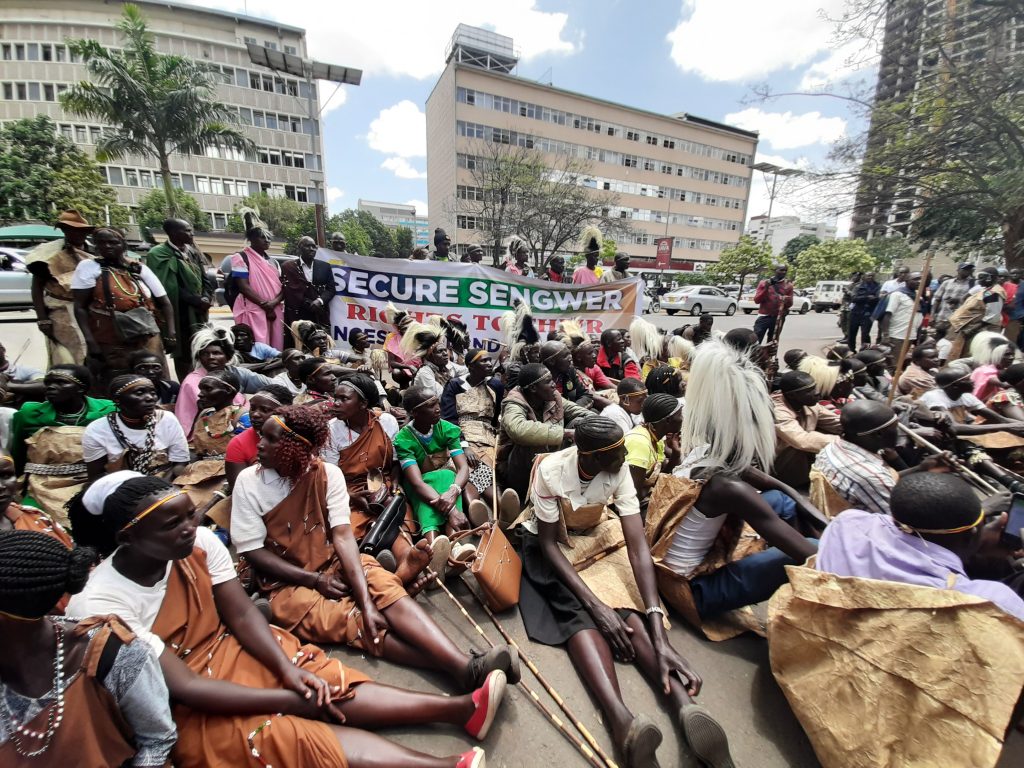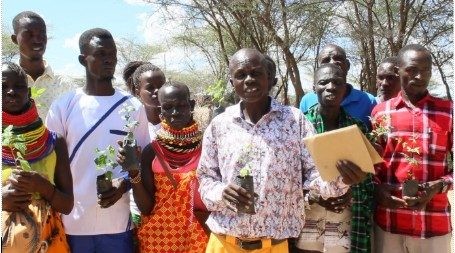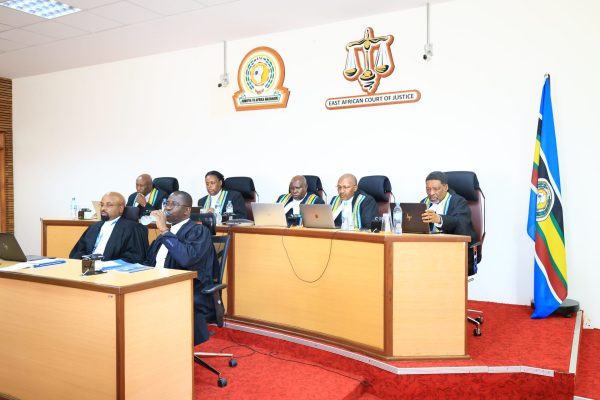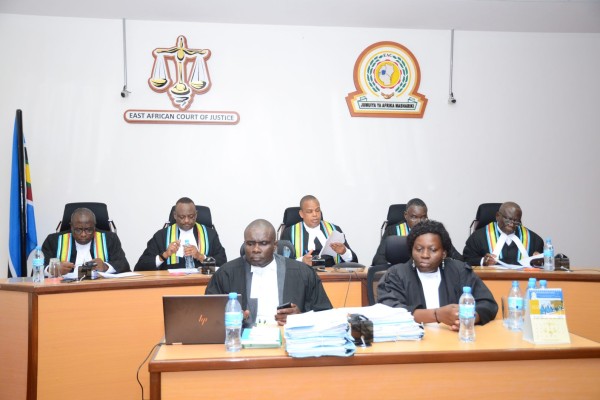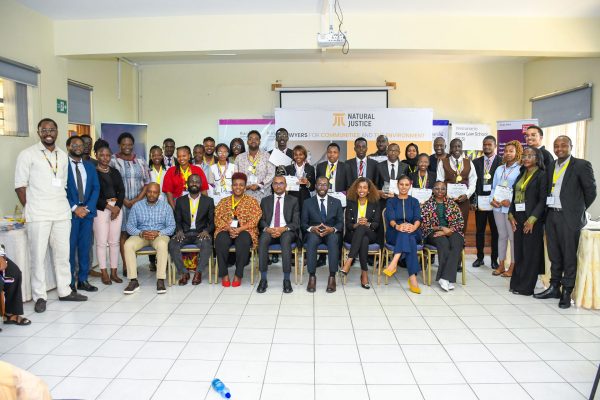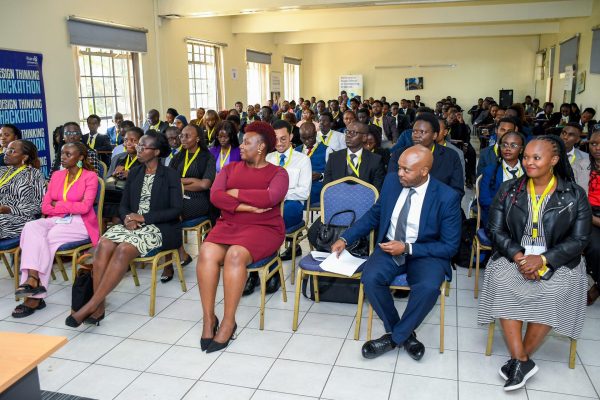Between 7 and 10 July 2020, the Kenya Forest Services launched coordinated evictions to remove the Sengwer and Ogiek communities from their ancestral lands in the Embobut and Mau forests respectively. This occurred despite the existence of a moratorium by the Cabinet Secretary, Ministry of Interior and Coordination of National Government halting all forced evictions during the coronavirus pandemic period.
The evictions also ignored an earlier statement by the United Nations Special Rapporteurs on adequate housing and the situation of human rights defenders, calling upon the government to stop all evictions during the pandemic period and protect human rights defenders working with evictees.
The evictions in Mau and Embobut were preceded by earlier evictions in the Kariobangi and Ruai regions in Nairobi. Evictees were granted only 24 hours’ notice of the planned evictions and human rights defenders were threatened with ‘forced disappearances’.
In 2018, environmental defenders who are members of Save Lamu, a community organisation opposed to the construction of the Lamu Coal Plant, where arrested on false charges of belonging to a terrorist group and harassed by government forces.
This situation is similar to that faced by environment and land defenders advocating against unsafe salt mining in Magarini sub-county in Kilifi County. The situations in Mau, Embobut, Kairobangi, Ruai and along the Coast have become a norm in Kenya. Human rights and environmental defenders are harassed by the police and communities’ right to housing and a clean environment rest on the mercies of the government.
Kenya’s legal framework supporting defenders
From the scenarios, one may assume that Kenya lacks laws stipulating the rights and protection of environmental defenders. In actual fact, chapter four of the Constitution provides protection for fundamental rights and freedoms, including the right to a clean and healthy environment, right to freedom and security of person, freedom of expression, right to privacy, right to assembly and rights of arrested and detained persons.
Other laws which offer protection to defenders include the Prevention of Torture Act No. 12 of 2017, the Access to Information Act No. 31 of 2016, the Independent Policing Oversight Authority Act No. 35 of 2011, the Defamation Act, Cap 36, the Witness Protection Act, No. 16 of 2006 and the Fair Administrative Action Act No. 4 of 2015.
In addition, institutions such as the Independent Policing Oversight Authority and the Kenya National Human Rights Commission, as well as other human rights organisations, have been at the forefront of investigating and calling for the prosecution of perpetrators of human rights abuses.
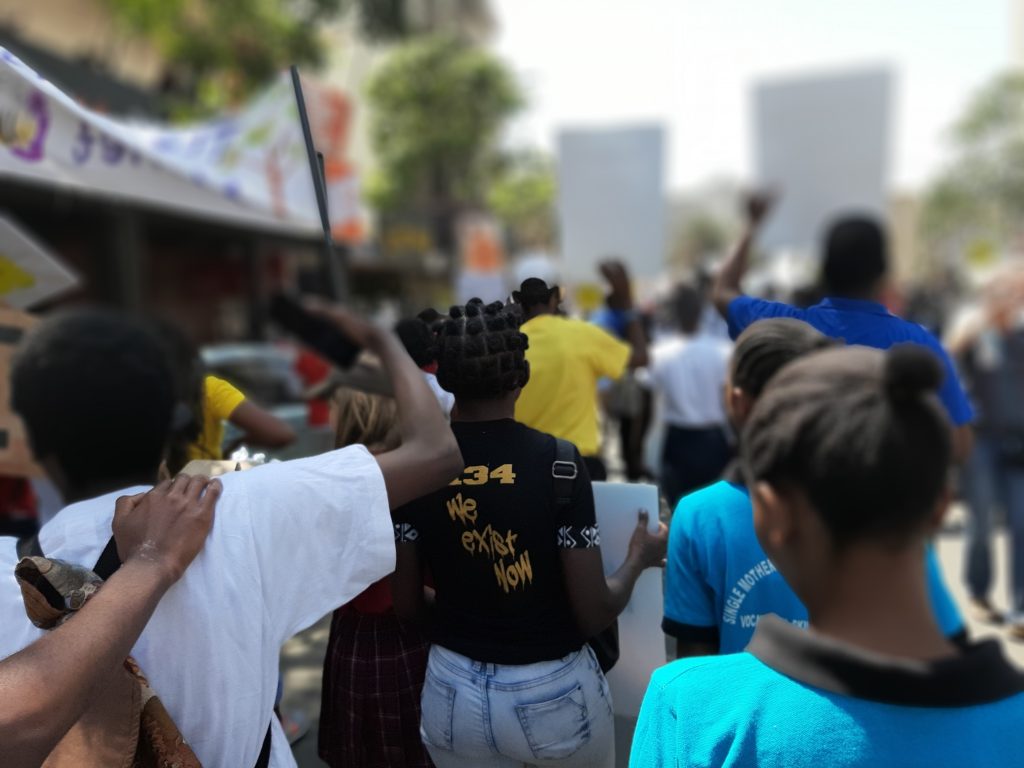
Threats to defenders
Nevertheless, more needs to be done to recognise the vital role played by environmental defenders in fighting against illegal acquisition of land, calling out state and non-state projects which cause harm to the environment, acting as watchdogs over state agencies, ensuring the implementation of environmentally-sound policies and zealously protecting the right to a clean and healthy environment.
This role is not only threatened by the police force, Kenya Forest Service and non-compliant project proponents, but also by unconstitutional laws and decisions. The Public Order (Amendment) Bill, 2019 is one such potentially unconstitutional law. The Bill proposes penalising organisers of public meetings or processions by requiring them to provide compensation for loss of life or damage to property occasioned by participants.
If passed, the Bill will infringe on the right to peaceful assembly. It will provide an unjustifiable limitation beyond the scope of Article 24 of the Constitution. In addition, the Bill does not take into consideration the realities of public meetings or processions which include the invasion of a lawful assembly by persons who are against it.
The High Court has also rendered conflicting judgments on the right of human rights defenders to assemble. The case of Ngunjiri Wambugu v Inspector General of Police & 2 others [2019] eKLR, sets damning precedence by proposing demarcation of demonstration zones, maximum numbers of demonstrators, consent of persons/entities adjacent to demonstration zones and penalties against protestors. The decision limits enjoyment of the right to assembly and is contrary to the Public Order Act Cap 56 and an earlier case of Ferdinand Ndung’u Waititu & 4 others v Attorney General & 12 others [2016] eKLR. In this case, the Court affirmed the right of organisers of public meetings to choose an appropriate public venue and use public streets and public areas for such meetings.
International condemnation
Kenya is yet to honour its obligations under the Constitution, as well as those found in regional and international conventions* it has ratified. This laxity has led to condemnation by the UN on Kenya’s human rights obligations. In a press release from 22 May 2020, UN special rapporteurs strongly condemned harassment of a human rights defender and noted that the ‘government has the obligation to guarantee Ms. Mumbi’s protection from such a threat [of forced disappearance], whether it comes from public officials or third parties acting with the acquiescence or knowledge of the State’.
On 23 July 2020, Community Land Action Now (CLAN) issued a press statement condemning recent evictions of the Ogiek and Sengwer. The press release, supported by 153 organisations across the globe, called for a halt to forced evictions and harassment of these communities and called for respect for the rule of law.
For the Government, there is need for targeted implementation of rights and freedoms in the Constitution. This includes ensuring constitutionality of laws adopted to regulate exercise of rights, compliance of actions of government agencies and corporations with environmental regulations, efficient investigation and prosecution of perpetrators of human rights abuses, promotion of civic education meetings on proposed projects and allowing communities to participate actively and efficiently in meetings, ensuring compliance with court orders and the evaluation of government policies which limit fundamental rights.
The judiciary also has a role to play in adopting constitutionally sound decisions on the rights of environmental defenders and by making rulings against vexatious cases instituted by the police.
* Kenya has ratified the Universal Declaration on Human Rights 10 December 1948, 217 A (III), the International Convention on Civil and Political Rights 16 December 1966, United Nations, Treaty Series, vol. 999, p. 171, the African Charter on Human and Peoples’ Rights 27 June 1981, CAB/LEG/67/3 rev. 5, 21 I.L.M. 58 (1982), the International Covenant on Economic, Social and Cultural Rights 16 December 1966, United Nations, Treaty Series, vol. 993, p. 3 and the Convention against torture and other cruel, inhuman or degrading treatment or punishment 10 December 1984, United Nations, Treaty Series, vol. 1465, p. 85.

